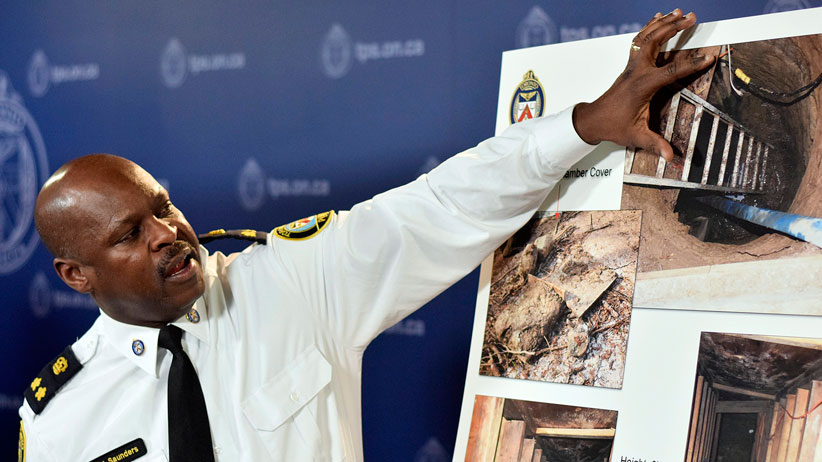How to end the fear economy
The best response to a terrorist threat? Travel tips and laughter
Share

There is a reason terrorists spend so much time making threats. Hiding in the Somali desert or Syrian ruins, they are separated from the West by armies, oceans and a trillion-dollar security industry. The only thing that can reliably reach us from there is menacing email. This is why terrorists mostly trade in fear.
The truth is that they simply are not very good at actually killing people. There were approximately 18,000 people killed by terrorists globally in 2013. Car accidents killed 70 times more. In Canada, only two people have died in terrorism attacks over the last decade. Moose are far more likely to kill you.
Unable to compete with moose, terrorists try to scare us instead. Islamic State recently announced it would send half a million migrants from Libya to conquer Rome. And al-Shabaab has threatened to attack shopping centres such as the West Edmonton Mall and London’s Oxford Street.
Related reading: Trying to unlock the mystery of Boko Haram
These are the threats of the powerless, exaggerated to extremes so we will not grow bored and forget them. Exaggerated to attract supporters. Exaggerated to give hope to their bloodied followers retreating from Mogadishu and Kobane.
Our politicians trade in the same fear. U.S. Secretary of Homeland Security Jeh Johnson immediately validated the al-Shabaab threat, calling it a “new phase of terrorism” and urging shoppers to be vigilant. Not coincidentally, Johnson is currently fighting to ensure his $40-billion budget is renewed, and warned that any delays will leave America vulnerable.
Canada’s Minister of Public Safety Steven Blaney also found the threat valuable. He used it to procure support for the military mission against Islamic State (a different group in a different country), and to defend the new anti-terrorism bill. For our leaders, fear is a currency that buys support for budgets and legislation.
Our media trades in fear, too. At one time an abandoned hole in the ground would go entirely unremarked; now the Toronto “Terror Tunnel” leads the evening news. The fanciful threats of ragged militants on the other side of the globe are given front-page coverage. Even this magazine has occasionally used anxiety to sell more copies.
Business is a big part of the fear economy. As soon as the media began to circulate the shopping-mall threats, security consultants were being interviewed about the real need for vigilance (and presumably their services). Canadian manufacturers sell more than a quarter of a billion dollars worth of weapons every year. We are the 15th-largest arms trader in the world. This requires threats, big ones. Suspicious holes in the ground, for example.
Fear is a commodity. It is exported from places and people with little else to offer. Our politicians then use it as a raw material to manufacture an ill-defined existential dread that can only be relieved with invasive security powers and larger police budgets. Media move the fear further up the value chain, adding dramatic graphics and foreboding bumper music. And then industry generates the most profit, selling us spy software, body scanners and guns.
It is very symbiotic. Terrorists attract followers. Politicians earn support. The media get traffic. And business sells the solution. Everyone wins—except us. The inevitable by-product of the fear economy is that we become ridiculously frightened, browbeaten into actually worrying that shopping for new sneakers could end in our death at the hands of an illiterate guerilla sitting in a mud hut 13,000 km away.
But there is hope. Ending the fear economy is relatively simple. When Italians learned of Islamic State’s threat to overrun Rome, they reacted with laughter. They mocked the terrorists and offered them advice on visiting hours and traffic. This debased the currency. The value of the threat plummeted, Italians got on with their lives, and the trade in fear was disrupted, if only temporarily.
We can all do this. The next time a politician claims that removing privacy is the only way to keep us safe, or the news breathlessly reports on a suspicious package, or a security expert explains we need to be concerned, respond the only way we should. Remember that terrorism is literally the least of our worries, and laugh at them.